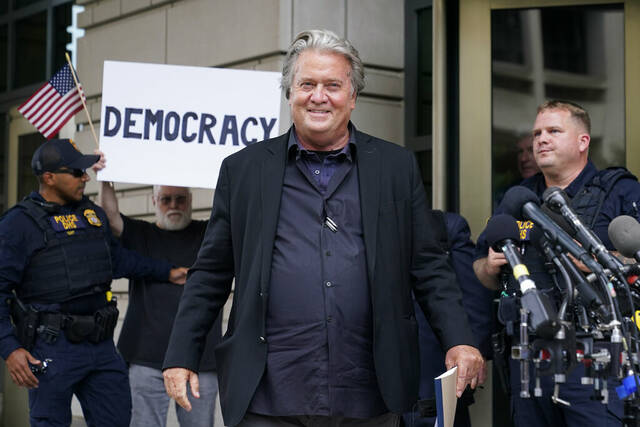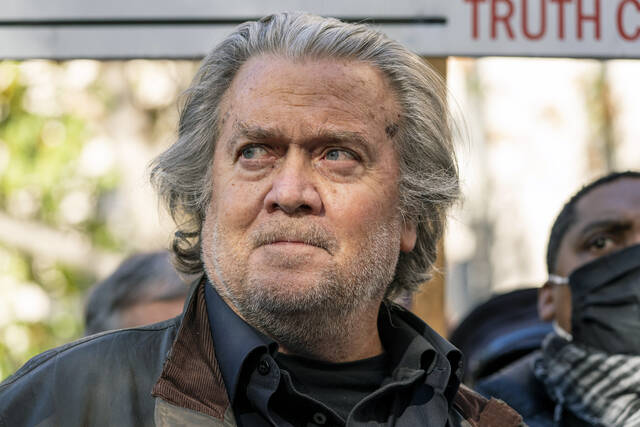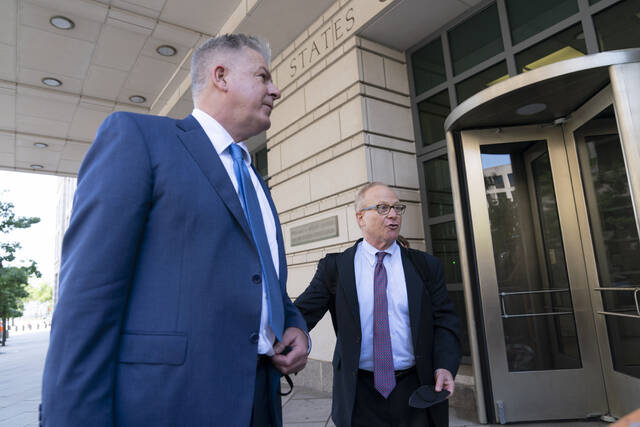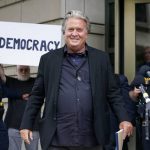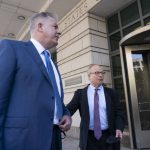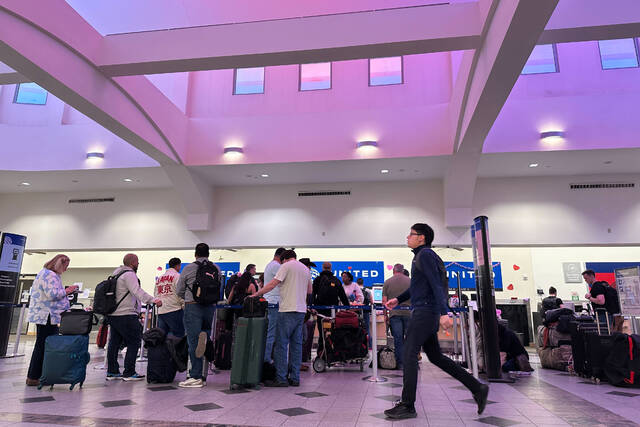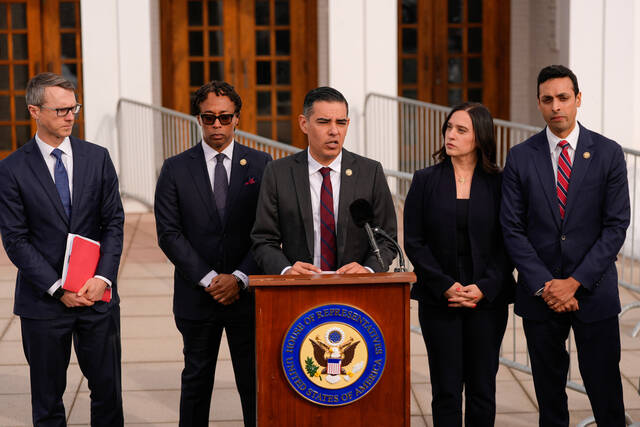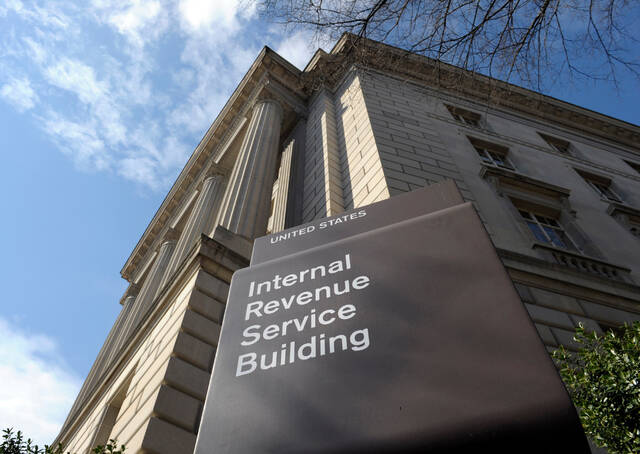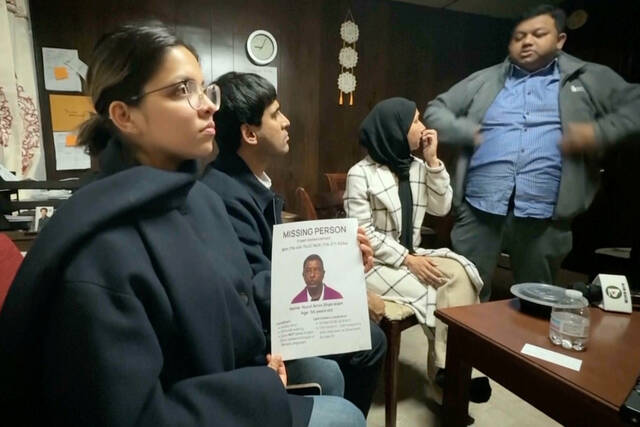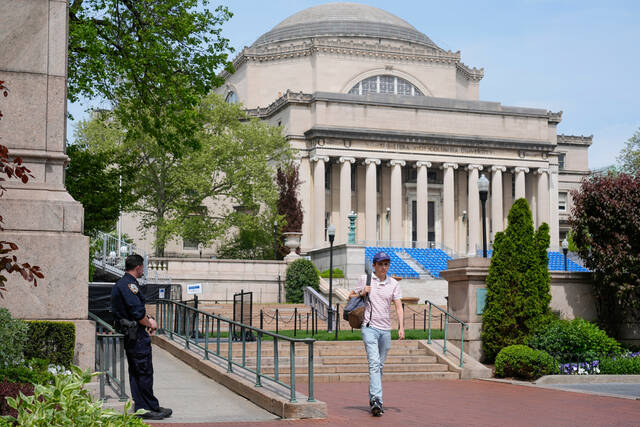WASHINGTON — Jury selection began Monday in the trial of Steve Bannon, a one-time top adviser to former President Donald Trump. He is facing criminal contempt of Congress charges after refusing for months to cooperate with the House committee investigating the Jan. 6, 2021, Capitol insurrection.
Bannon is charged in Washington’s federal court with defying a subpoena from the Jan. 6 committee that sought his records and testimony. He was indicted in November on two counts of criminal contempt of Congress, one month after the Justice Department received a congressional referral. Each count carries a minimum of 30 days of jail and as long as a year behind bars.
By early afternoon, eight jurors had been seated in a slow-moving process known as voir dire. Much of the questioning of potential jurors by Bannon’s lawyer, Evan Corcoran, centered on how much of the Jan. 6 hearings they’ve watched and whether they have opinions about the committee and its work.
Jury selection began in the trial of former Trump adviser Steve Bannon, who faces criminal contempt of Congress charges after refusing to comply with the Jan. 6 committee.@johnyangtv talks to @DevlinBarrett about the trial and the role it plays in the broader investigation. pic.twitter.com/rMFcuxlkRn
— PBS NewsHour (@NewsHour) July 18, 2022
In one case, a prospective juror flatly told U.S. District Judge Carl Nichols that remaining impartial would be “a challenge” for him since, “I do believe (Bannon) is guilty.”
That admission, in addition to disqualifying the potential juror, prompted questioning of others who had sat next to the man to determine how widely he had shared his opinion.
The trial follows a flurry of activity in the case since July 9. Over a week ago, the former White House strategist notified the committee that he is now willing to testify. His former lawyer, Robert Costello, said the change was because Trump had waived his executive privilege claim from preventing the testimony.
Bannon, 68, had been one of the most prominent of the Trump-allied holdouts in refusing to testify before the committee. He had argued that his testimony was protected by Trump’s claim of executive privilege, which allows presidents to withhold confidential information from the courts and the legislative branch.
Steve Bannon thanks jurors for being “truthful and blunt” in their answers about their feelings about him. pic.twitter.com/FqsxtDTOty
— Ryan J. Reilly (@ryanjreilly) July 18, 2022
Trump has repeatedly asserted executive privilege — even though he’s a former, not current president — to try to block witness testimony and the release of White House documents. The Supreme Court in January ruled against Trump’s efforts to stop the National Archives from cooperating with the committee after a lower court judge — Ketanji Brown Jackson, now on the Supreme Court — noted, in part, “Presidents are not kings.”
The committee has also noted that Trump fired Bannon from the White House in 2017 and Bannon was thus a private citizen when he was consulting with the president in the run-up to the riot.
Judge Nichols declined motions to delay the contempt trial in separate hearings last week, including Thursday when Bannon’s lawyers raised concerns about a CNN report that has since aired about their client and what they said were prejudicial comments made during a hearing last week held by the House committee.
“I am cognizant of current concerns about publicity and bias and whether we can seat a jury that is going to be appropriate and fair, but as I said before, I believe the appropriate course is to go through the voir dire process,” Nichols said Thursday. The judge said he intended to get a jury that “is going to be appropriate, fair and unbiased.”
While the judge allowed the trial to move forward, Nichols left open the possibility that the letters about Trump waiving his privilege and Bannon’s offer to cooperate with the committee could be referenced at trial, saying the information was “at least potentially relevant” to Bannon’s defense.
Roscoe Howard Jr., the former U.S. attorney in Washington, said the best case for Bannon is if the information on his cooperation offer gets to the jury. Even if it does, however, a claim that executive privilege stopped him from cooperating earlier will be a hard argument to make because Bannon refused to answer the subpoena, Howard said.
“You have to show up to invoke the privilege claim. You can’t phone it in,” he said.


